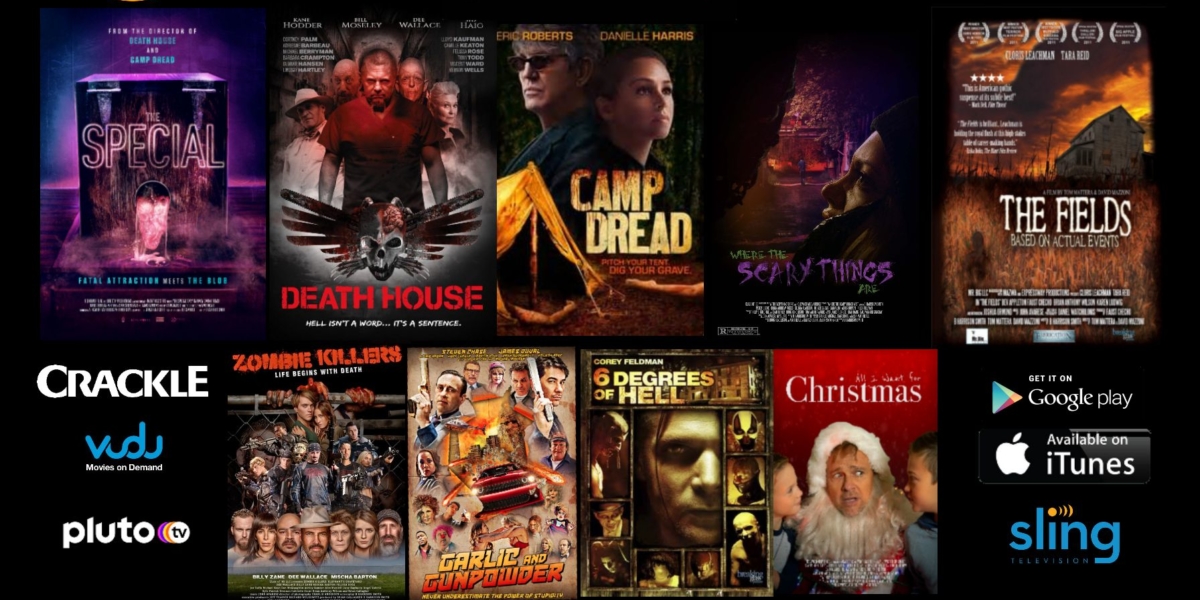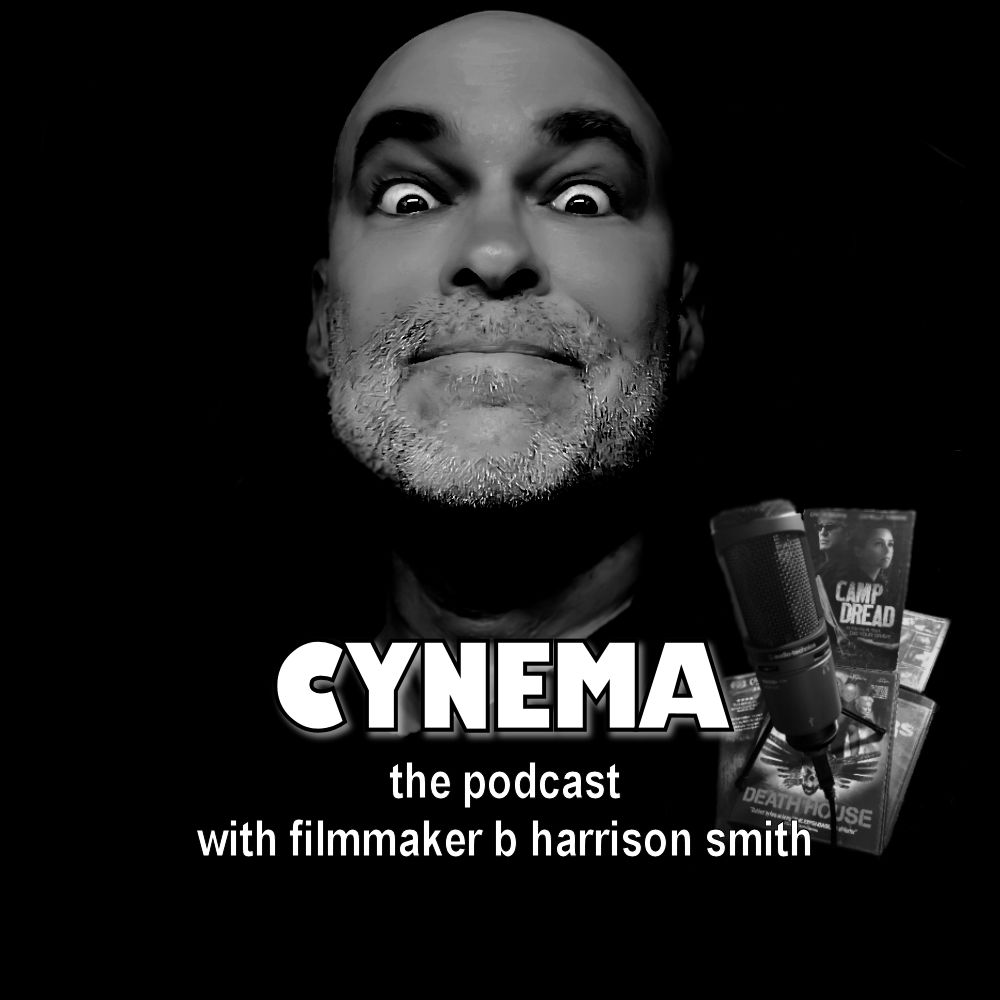
Artist Talk: Filmmaker Harrison Smith brings his brand of horror to PCA&D
Thursday, September 22nd, 2022
Filmmaker Harrison Smith can barely remember a time when horror movies didn’t fascinate him.
When Bruce the shark terrorized Amity Island in Jaws, the 8-year-old was gleefully hooked.
When his grandmother would watch classic horror movies with the young boy, he absorbed everything.
Horror, Smith says now, is one of the most honest film genres — certainly more honest than a Disney film that’s marketed to tweens and teens (more on that later). It’s personal, it’s up-front, and a horror film can encompass just about any other genre of filmmaking, too.
The Lancaster-based filmmaker visits Pennsylvania College of Art & Design on Thursday, Sept. 29, for an Artist Talk that’s open to the entire campus. Sponsored by the Photography & Video Department, the presentation begins at 11:30 am in the Atrium.
Learn more about Smith’s career trajectory — it’s not a traditional one — the ways in which film directing and writing satisfy his creative side, and the intersection between his life and his art.

How did the horror genre guide you through your kid and teen years? And what’s been your path?
Harrison Smith: I wanted to make movies since I saw “Jaws” as a boy. I was 8 when my mother took me, after begging her for most of the summer of 1975.
The film made an impact because it was the first movie I saw where the audience stood and applauded at the end. I knew right there I wanted to make movies.
Since then, I was “that kid” who wrote horror stories, weird stories, and when my uncle bought me a silent Super 8mm film camera in 8th grade, I became “the movie kid.” I made short films all through high school with my friends and had my first local cable TV show at age 16.
I went to Penn State for film and majored in partying, and flunked out by the end of the first semester. From there I went to Los Angeles, where I lied my way into a job at Universal Studios thanks to help from actor Anthony Perkins.
I spent almost two years out there, returned home, and ran a mall movie theater for eight years before returning to college. I worked full-time at the theater and got my bachelor’s in secondary education in two years.
I taught for 15 years until I was approached to make my first film, “The Fields”, which starred Cloris Leachman and Tara Reid. The film is the true story of what happened to me as a boy on my grandparents’ farm in 1973.
I went full-time into filmmaking and, after one failed marriage and a lifetime of mistakes and failures, never looked back.
Horror was a respite from a turbulent childhood. My parents went through a very tumultuous divorce and I experienced physical and emotional abuse from a subsequent boyfriend of my mother’s, unknown to her. Horror was an escape and my grandmother taught me all about it. By the time I was 7, I would tell you who Karloff, Chaney, Cushing, Lorre, Lugosi were — everyone who was anyone in that genre. “The Fields” shows this very well as the film is not just a psychological thriller, it is autobiographical.
Do film writing and film directing fulfill different creative urges you have, or is it the ability to follow the whole process, start to finish, which attracts you?
HS: I think it is an escape. I can get lost in writing. Directing is another matter because you have so much to worry about being on set. It’s not just showing up and yelling “action” and “cut.” There’s so much that goes into it and it can be distracting from the creative process. When I write I have characters to build, worlds to outfit, so it’s much more immersive and I think that’s the attraction.
How does the genre you most work in help you say what you want to say? Can horror/suspense encompass action, romance, drama … all of it?
HS: I have done an action film, “Garlic and Gunpowder.” I love comedies as much as horror and have done that with “Garlic” as well. I have done two holiday films (not my favorite, but it’s work), and would do a romance if the script was good. I am not stuck to one genre. If the script is good that’s all that matters.
Do you sometimes feel that the horror/suspense genre is misunderstood and overlooked? What’s your pushback against that attitude?
HS: (refers to the introduction to his memoir, “This Time It’s Personal,” which in part addresses this question. It reads, in part): “Horror doesn’t have to be all guts and gore. It doesn’t have to be “A Serbian Film” or “Cannibal Holocaust” every time. Those films and others of their kind are just a sub-genre of horror and don’t solely represent it any more than “Friday the 13th” defines the genre. Horror is what connects with YOU.
It’s always personal.
You do know what you’re getting when you look at the posters and see the previews. The filmmakers aren’t hiding anything from you. Horror is transparent.
Disney and other “family” companies can’t all say the same (this follows a description of a scene full of sexual innuendo in a 3D Jonas Brothers movie marketed to tweens).
If this offends you, then you don’t know horror. You do not understand it.”
What’s a film that few people have seen that everyone should see: a gem of a movie that’s largely under the radar? In your eyes, what makes it great?
HS: Hard one to answer. Everything is subjective. Under the radar … I would have to say Spielberg’s “1941.” A World War II comedy that bombed in its 1979 release and few know about it.
However, it is one of the last great all-star ensemble comedies ever made. Big screen, funny as hell, with an incredible swing dance number. The production design takes you right back to an era forgotten and unfortunately unknown to anyone under 30. Well done, it showcases a lot of Spielberg’s lesser-known talents and is a very American film. Treat yourself if you haven’t already.
